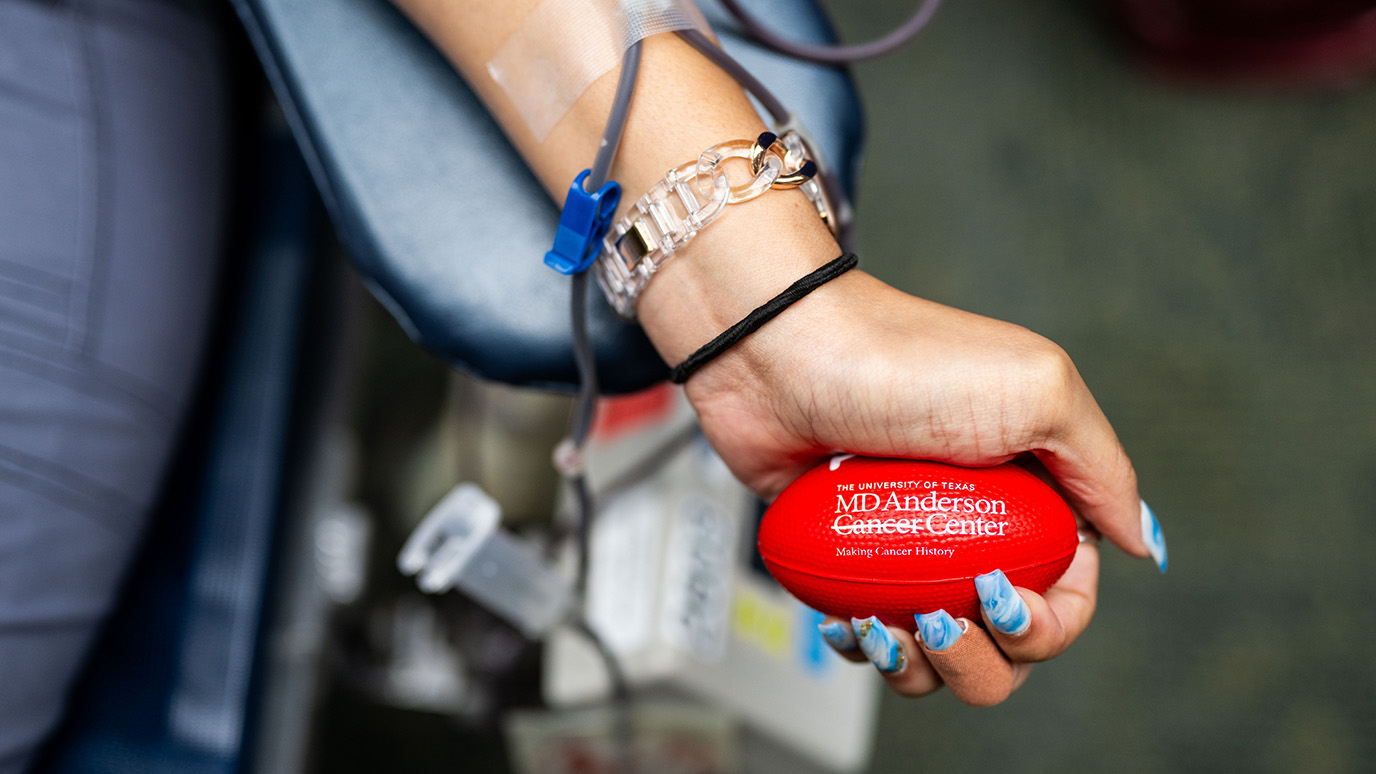- Diseases
- Acoustic Neuroma (14)
- Adrenal Gland Tumor (24)
- Anal Cancer (68)
- Anemia (2)
- Appendix Cancer (16)
- Bile Duct Cancer (26)
- Bladder Cancer (72)
- Brain Metastases (28)
- Brain Tumor (232)
- Breast Cancer (714)
- Breast Implant-Associated Anaplastic Large Cell Lymphoma (2)
- Cancer of Unknown Primary (4)
- Carcinoid Tumor (8)
- Cervical Cancer (158)
- Colon Cancer (166)
- Colorectal Cancer (118)
- Endocrine Tumor (4)
- Esophageal Cancer (44)
- Eye Cancer (36)
- Fallopian Tube Cancer (8)
- Germ Cell Tumor (4)
- Gestational Trophoblastic Disease (2)
- Head and Neck Cancer (12)
- Kidney Cancer (128)
- Leukemia (342)
- Liver Cancer (50)
- Lung Cancer (286)
- Lymphoma (278)
- Mesothelioma (14)
- Metastasis (30)
- Multiple Myeloma (100)
- Myelodysplastic Syndrome (60)
- Myeloproliferative Neoplasm (6)
- Neuroendocrine Tumors (16)
- Oral Cancer (100)
- Ovarian Cancer (172)
- Pancreatic Cancer (160)
- Parathyroid Disease (2)
- Penile Cancer (14)
- Pituitary Tumor (6)
- Prostate Cancer (146)
- Rectal Cancer (58)
- Renal Medullary Carcinoma (6)
- Salivary Gland Cancer (14)
- Sarcoma (238)
- Skin Cancer (296)
- Skull Base Tumors (56)
- Spinal Tumor (12)
- Stomach Cancer (64)
- Testicular Cancer (28)
- Throat Cancer (92)
- Thymoma (6)
- Thyroid Cancer (98)
- Tonsil Cancer (30)
- Uterine Cancer (80)
- Vaginal Cancer (16)
- Vulvar Cancer (20)
- Cancer Topic
- Adolescent and Young Adult Cancer Issues (20)
- Advance Care Planning (10)
- Biostatistics (2)
- Blood Donation (18)
- Bone Health (8)
- COVID-19 (362)
- Cancer Recurrence (120)
- Childhood Cancer Issues (120)
- Clinical Trials (632)
- Complementary Integrative Medicine (22)
- Cytogenetics (2)
- DNA Methylation (4)
- Diagnosis (232)
- Epigenetics (6)
- Fertility (62)
- Follow-up Guidelines (2)
- Health Disparities (14)
- Hereditary Cancer Syndromes (126)
- Immunology (18)
- Li-Fraumeni Syndrome (8)
- Mental Health (116)
- Molecular Diagnostics (8)
- Pain Management (62)
- Palliative Care (8)
- Pathology (10)
- Physical Therapy (18)
- Pregnancy (18)
- Prevention (918)
- Research (392)
- Second Opinion (74)
- Sexuality (16)
- Side Effects (604)
- Sleep Disorders (10)
- Stem Cell Transplantation Cellular Therapy (216)
- Support (402)
- Survivorship (322)
- Symptoms (182)
- Treatment (1786)
3 reasons to donate blood
3 minute read | Published August 04, 2021
Medically Reviewed | Last reviewed by an MD Anderson Cancer Center medical professional on August 04, 2021
You probably already know that donating blood can save lives.
But did you know that donating blood and platelets is risk-free to the donor, and it has some health perks for you as the donor?
We talked to Fernando Martinez, M.D., medical director of Transfusion Services and Donor Operations at MD Anderson, about some of the reasons you should donate blood.
You will get some important medical information
When you donate blood at MD Anderson Blood Bank or another donation center, they’ll perform several tests to see if you are healthy enough to donate blood and if your blood is safe for another person. The results of these tests can provide you with some important health information.
“Every donor fills out a questionnaire to make sure that there are no risky behaviors that may affect the quality of the blood that we are going to take,” says Martinez. “After that, we weigh the donor, we take their vital signs, we do a hemoglobin test, and in some cases, we take a CBC or complete blood count.”
These tests can reveal important information about your health, including:
- High blood pressure: Your blood pressure is an important measure of your risk for heart attack and stroke. High blood pressure often goes undetected because it does not have any symptoms. If you have undetected high blood pressure, getting it checked can be lifesaving.
- Anemia: Anemia happens when you have too few red blood cells. This shows up in a blood test as low hemoglobin. Hemoglobin is a protein in your red blood cells that carries oxygen to your cells. Anemia is often described as having low iron, because you need iron to produce hemoglobin. If you hemoglobin is either high or low, this will be detected through a blood donation. Either condition should prompt a visit to your doctor.
“We also do antibody and DNA testing for about seven infectious diseases,” says Martinez. “If we detect any evidence of a viral, parasitic or bacterial infection, we notify the donor by letter.”
Something else you’ll learn during your donation: your blood type. Routine blood tests you get through your doctor don’t test for blood type. This information can be good to have in an emergency. And aren’t you curious?
Keep in mind that donating blood should not replace a visit to your primary care doctor. And it shouldn’t be used as a way to test for HIV or other diseases if you suspect you have been exposed. Many blood banks, including MD Anderson Blood Bank, test for COVID-19 antibodies, but you also shouldn’t use blood donation to determine if you’ve had COVID-19 or if vaccination worked. You will get some important health information, though. And you may be alerted to an underlying health condition that you were not aware of.
There is no risk to the blood donor
During your blood donation, you will give about 1 pint of blood. A person who weighs 155 pounds has about 10 pints. Your blood volume will be back to normal in a couple of hours, and your iron level will be restored in a couple of months.
“The effects on the body are really minimal,” says Martinez. “There is no risk to the donor.”
You may feel tired for a day or have some mild pain in the collection site. Martinez recommends drinking plenty of fluids before and after donating, to ensure you blood volume stays steady.
You will feel good about helping someone in need
There is a current nationwide shortage of donated blood, which makes this a great time to donate blood and save a life. MD Anderson cancer patients depend on donations of blood and platelets from our community.
“You never know when you or a loved one is going to need blood,” says Martinez. “The main benefit is knowing that you did your part. You are helping a fellow human being in need.”
Schedule a blood or platelet donation at MD Anderson Blood Bank, or donate in your local area to save a life.

The main benefit is knowing that you did your part.
Fernando Martinez, M.D.
Physician






